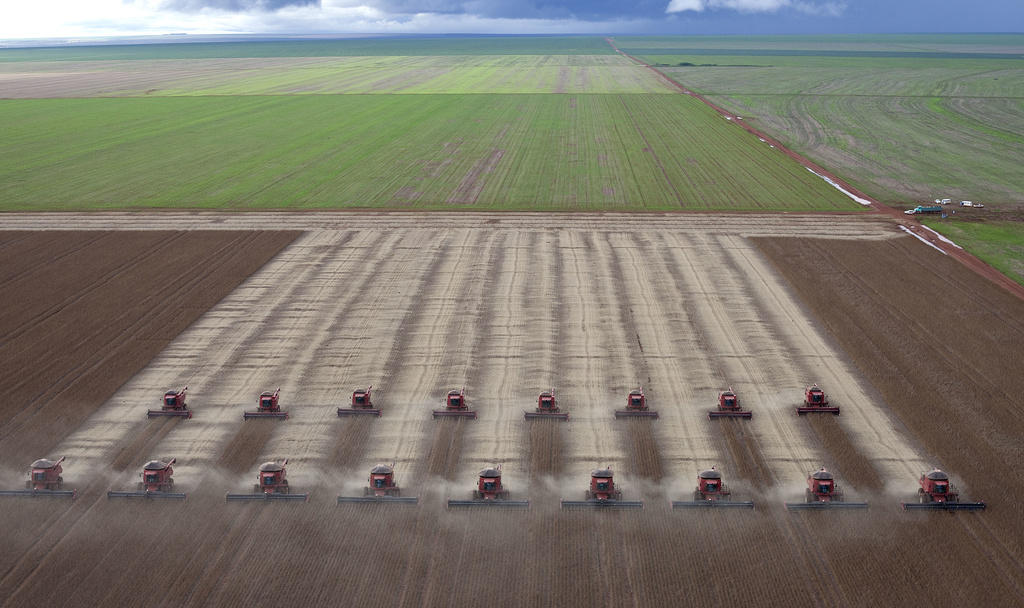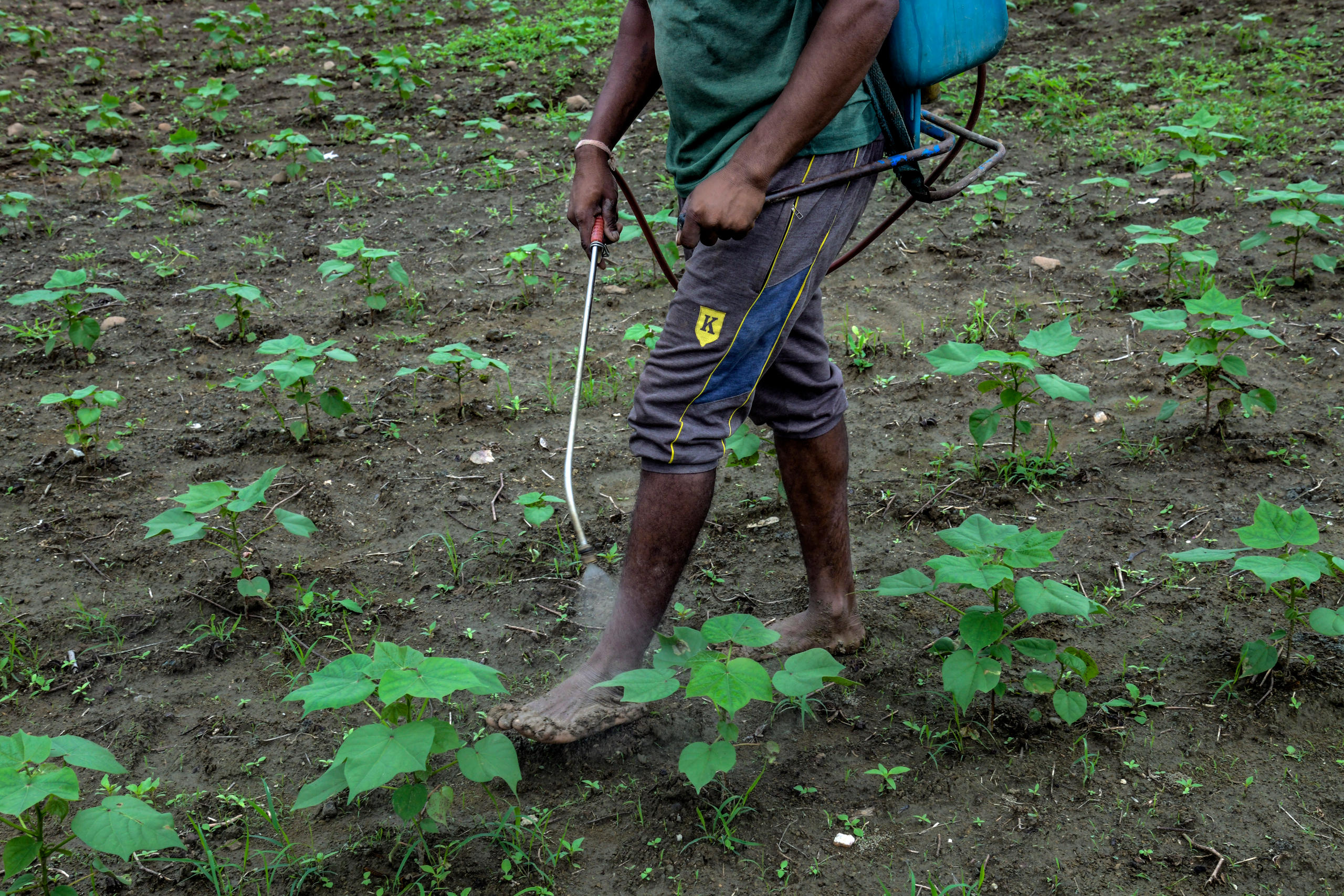
Syngenta slammed for hazardous pesticide profits

A United Nations representative is demanding action following reports that Swiss crop science company Syngenta is selling highly hazardous pesticides abroad.
“There is an urgent need to end this exploitation of lower standards of protection. This is a morally and ethically unjustifiable situation,” Baskut Tuncak, United Nations Special Rapporteur on human rights and toxics, told Swiss NGO Public Eye on Wednesday. “States should have mandatory human rights due diligence for chemical manufacturers.”
Syngenta has earned billions selling pesticides that are not approved for use in Switzerland, announced the NGO in a reportExternal link published this week. It states that of the 32 substances which are included in the company’s “key marketed products”, 15 are considered “highly hazardous” by the Pesticide Action Network (PAN). Of the thousands of pesticides reviewed by PAN, some 310 active ingredients in pesticides are considered extremely dangerous because of increased incidence of birth defects, cancer and other serious diseases.
“According to our calculations, in 2017, the Swiss giant made approx. $3.9 billion (CHF3.93 billion) in revenue from highly hazardous pesticides. The multinational takes advantage of weaker standards in countries such as Brazil, Argentina or India to continue selling its toxic ‘blockbusters’, many of which are no longer authorised in Switzerland or the European Union,” wrote Public Eye in its report.
This week’s tweet from a farming news portal echoes Syngenta’s success in the region.
#LatinAmericaExternal link @SyngentaExternal link #earningsExternal link The #businessExternal link in #BrazilExternal link and #ArgentinaExternal link has excellent results in this 2018: https://t.co/5NKmPuPp9ZExternal link pic.twitter.com/VDZmiCBVhGExternal link
— Efarm News Ar (@EfarmN) 15 avril 2019External link
In response, a Syngenta spokesperson told swissinfo.ch that, “the Public Eye report is politically motivated and deliberately misleading – its rhetoric is designed to scare the public and promote the Responsible Business Initiative in Switzerland. The report is based on a list developed by PAN, which no national or international organization recognizes”.
Syngenta’s Switzerland director, Roman Mazzotta, told Swiss Public Television RTS that, “Our products are safe, they are subject to long-term inspections and are regularly checked. It takes many years for a product to be registered. There is therefore no reason for us to remove these products from the market”.
In an interviewExternal link published on Monday in the Frankfurter Allgemeine Zeitung, Syngenta CEO Erik Fyrwald argued that effective crop protection products play an important role in feeding the planet and tackling climate change.
In other news: The Federal Administrative Court has revoked more than a dozen pesticide licences issued by the Federal Office for Agriculture (FOAG)External link.
On Wednesday, the court announced that it had approved four WWF SwitzerlandExternal link appeals because excluding the environmental organisation from the licensing procedure had constituted a serious breach of justice.
The rulings of the Federal Administrative Court are based on a landmark decision of the Federal Court in February 2018, when the judges decided that WWF was entitled to a say regarding the approval of the pesticides.
In 2015, WWF had learned via the FOAG website that the office was carrying out an examination procedure for various plant protection products. The environmental organisation then asked to be included, but the FOAG refused.
Now WWF is asking the Swiss justice system to revoke additional licences that have been granted in the meantime.

More
Swiss-made pesticide blamed for farmer deaths in India

In compliance with the JTI standards
More: SWI swissinfo.ch certified by the Journalism Trust Initiative





























You can find an overview of ongoing debates with our journalists here . Please join us!
If you want to start a conversation about a topic raised in this article or want to report factual errors, email us at english@swissinfo.ch.